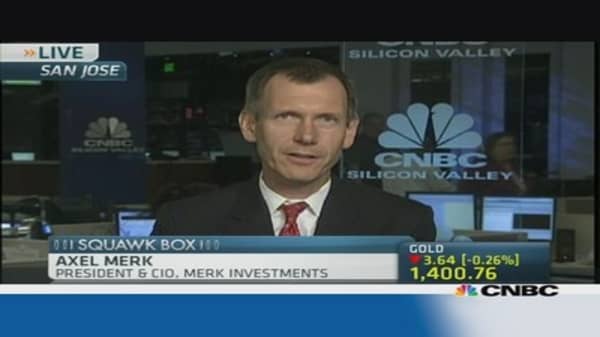Bank of Japan (BOJ) Governor Haruhiko Kuroda is too "in love" with his own policies, according to one analyst who says the confidence could have some negative repercussions.
At the annual Jackson Hole central bankers' retreat in Wyoming at the weekend, Kuroda was reported saying that the aggressive monetary policy action that he has championed to revive the Japanese economy was starting to have an impact.
(Read more: BOJ's Kuroda: Won't hesitate to ease further if downside risks increase)
"Kuroda, who spoke on a panel at Jackson Hole Saturday... is in love with his policies," Axel Merk, president of Merk Investments, told CNBC Asia's "Squawk Box" on Tuesday.
"He was bragging about how his policies are working and he was referring to how the bond yields are holding, whereas they have been spiking everywhere else," added Merk.
(Read more: Should Kuroda be more like Draghi?)
After rising sharply in April and May on uncertainty about the implications of the BOJ's decision to embark on aggressive monetary stimulus, Japanese government bond yields have edged down.
The benchmark 10-year yield is trading around 0.76 percent. In contrast, the 10-year Treasury yield has risen sharply recently to about 2.8 percent in anticipation of a scaling back of U.S. monetary stimulus.



.530x298.jpg?v=1377579725)

